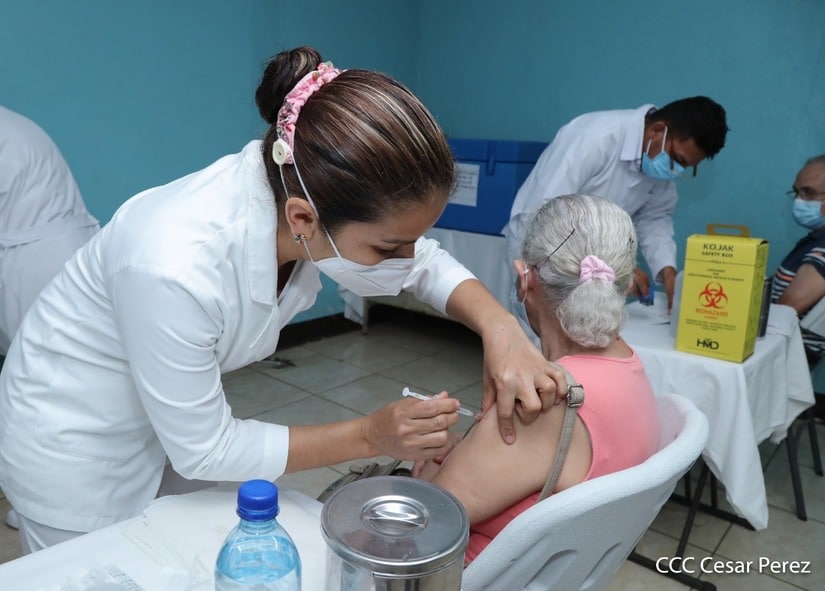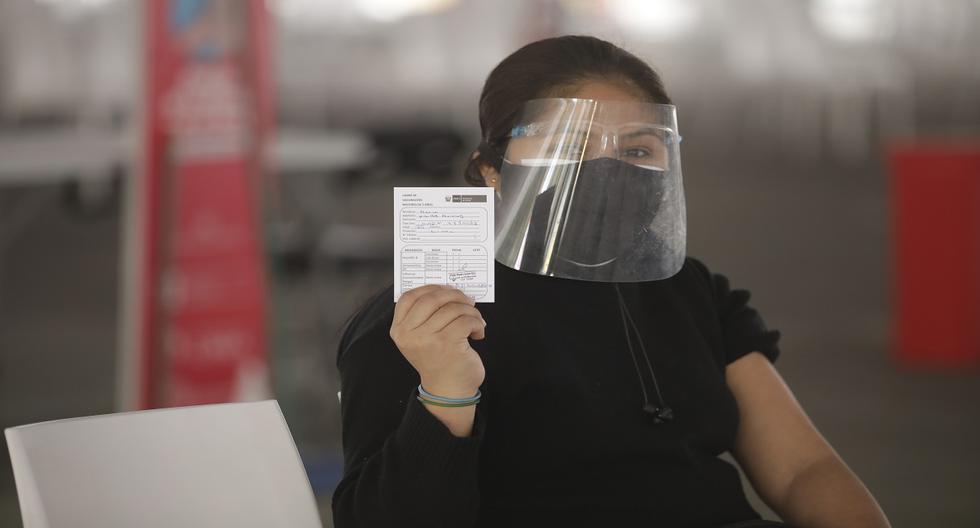The Pan American Health Organization (PAHO) urged countries to prioritize vaccination against covid-19 in the groups most vulnerable to developing the disease severely, including those over 60 years of age and people with pre-existing conditions. “This lack of prioritization is dangerous because it keeps our elderly vulnerable and our health systems at risk,” said PAHO Director Carissa Etienne during the weekly press conference offered by this entity.
In Jamaica, Nicaragua and Guatemala, countries where the application of anti-covid-19 vaccines lags the most, Etienne says, immunizations are being offered to “everyone, a lot of young people, healthy people, who are protecting themselves before the (older) population ”. “We urge countries to ensure coverage for vulnerable groups first,” he stressed.
In eight months of vaccination against covid-19, the Ministry of Health (Minsa) in Nicaragua has immunized 2.3 million people with both doses, equivalent to 37.3% of the population, according to PAHO. However, it is unknown how much of this percentage corresponds to the groups most vulnerable to contracting the disease severely.
Vaccination coverage against covid-19 took an important jump during the last month, going from less than 10% to almost 38% of the population, which brings Nicaragua closer to meeting the immunization goal against the pandemic indicated by PAHO of at least 40% of the general citizenship. However, these data differ from the official information, provided by Vice President Rosario Murillo, who places the advance in immunization at about 70%, but does not specify the number of doses per type of vaccine. According to PAHO 4,338,241 people in Nicaragua have already received a first dose.
The rate of vaccination in Nicaragua advanced faster after the Government opened 1,087 health posts and health centers to inoculate citizens, in addition to organizing itinerant days to vaccinate against the pandemic from house to house, as they have done in previous years with the traditional vaccine scheme.
Maintain vaccination against covid-19
For his part, Dr. Jarbas Barbosa, deputy director of PAHO, said that vaccination against the pandemic should continue, although the efficacy of the sera against the new variant of SARS-CoV-2, omicron, is not yet known. He recalled that the predominant strain is delta and, given this, vaccines are effective in reducing serious cases and deaths. He also highlighted the streamlining of vaccination in Nicaragua, one of the countries that benefited from donating serum through the COVAX Mechanism of the World Health Organization (WHO).
“All countries have to continue with vaccination in order to protect the most vulnerable and, later, protect the entire adult population,” said Dr. Barbosa.
The new variant is already present in six countries in the region: Argentina, Brazil, Canada, Chile, Mexico and the United States. Dr. Etienne said that “it is only a matter of time before this variant begins to circulate in more countries.” However, the arrival of omicron “does not necessarily mean that things will be worse, but it does mean that we must be extra-vigilant in the short term,” warned the director of OPS.

















